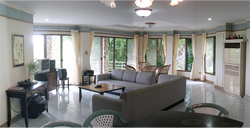Real Estate in Thailand
Buying Property
 Many people fall in love with Thailand and decide to settle here permanently. Buying land in Thailand is possible but foreigners will not be allowed to own the
lease – land is not sold as a freehold to overseas investors. However, if purchasing land with a house or other property on it, the building can be bought freehold
but not the land it stands on . This will remain leasehold. Developers usually lease land for 30 years to the owner of the property. The best option is to increase
this for a further two more 30 year periods thus creating a 90 year lease
Many people fall in love with Thailand and decide to settle here permanently. Buying land in Thailand is possible but foreigners will not be allowed to own the
lease – land is not sold as a freehold to overseas investors. However, if purchasing land with a house or other property on it, the building can be bought freehold
but not the land it stands on . This will remain leasehold. Developers usually lease land for 30 years to the owner of the property. The best option is to increase
this for a further two more 30 year periods thus creating a 90 year lease
It is possible to buy the land lease through the establishing of a company. This has the benefit of making any resale to foreigners simpler as the company can be transferred to the new owners and there is no need to change the title deeds.
The law does allow expats to buy apartments and condominiums on a freehold basis although some buildings only allow for 49% of its condos to be owned by non Thai citizens. Funds for the purchase must be transferred from an overseas bank into a Thai Bank account. When the funds have been deposited, the Thai bank will issue a foreign exchange certificate (Thor Tor 3)
Whilst negotiations are usually down through an estate agent it is advisable to employ the services of a reputable law firm to conduct a full land survey and title search to ensure the seller has the title to both the property and the land. Occasions have arisen where the seller has used the land as collateral for a loan, meaning that legally the bank owns the land until the debt has been repaid. If buying a condo the title report should show any outstanding fees on the property.
Once the contract has been drawn up and signed by all parties the deposit can be paid. It is advisable to have all documents notarized although this is not a legal necessity. If a power of attorney is not issued the purchaser must visit the Land Office with certain documentation including passport, house registration document (if applicable) and any previous marriage or divorce papers. If obtaining a mortgage, documentation from the bank is required as the title will be put in the banks name All documentation of the purchase will be in Thai so a request for an English translation is a must.
Renting Property
 When signing a tenancy agreement in Thailand you will need to have a copy of your work permit if you have one. Alternatively you can have a letter of residence
issued by your embassy (it must be translated into Thai) or a letter of residence which has been issued by the Thai immigration department.
When signing a tenancy agreement in Thailand you will need to have a copy of your work permit if you have one. Alternatively you can have a letter of residence
issued by your embassy (it must be translated into Thai) or a letter of residence which has been issued by the Thai immigration department.
Most tenancy agreements in Thailand are for a period of one year, but shorter agreements are available from just three months. The lease should clearly state a number of factors connected to the tenancy. These include the monthly rent, the period of time for which the lease is valid, how the agreement can be terminated, the procedure that will be followed if either party breaks the terms of the lease and any other terms and conditions that the landlord has specified. An inventory of all items and the general condition of the property should also be provided although this will be separate from the tenancy agreement. While there is a tenancy agreement in place the landlord does not have the right to raise the rent although they are within their rights to negotiate new rent at the time of renewal.
A security deposit is payable at the start of the lease and this is refundable when you leave the property if there is no damage. Rent deposits are normally the equivalent of 2 or 3 month’s rent and this is also refundable.
If you are a tenant in an apartment complex then you may find that you do not have to pay for utilities such as water and waste removal, and it is often the case that the cost of cable television is included. If you are renting a house you may find that you are expected to pay all running costs yourself. An expat who is renting a property in Thailand is not permitted to run a business from that property.
If you need to terminate a tenancy agreement then you will forfeit your deposit if it is prior to the agreed end date on the agreement. The agreement may state that you can give a certain amount of notice to terminate the lease (usually 60 days), in which case you will get your deposit back if you need to leave. A landlord is only able to terminate a tenancy agreement if the tenant is in breach of the agreement’s terms and conditions.
RezEasy PMS
RezEasy cloud-based PMS offers real-time access from any desktop computer or tablet anytime, anywhere. Handles bookings, reservation updates, folios, housekeeping tasks, POS, reporting, channel management, online reservations, free booking links and more.
The Beach Restaurant
Our restaurant is located at the north end of Bang Saray beach within a few metres of the sea. You can enjoy beautiful sunsets overlooking the Gulf of Thailand with a view of Jomtien beach and Pattaya in the distance.
